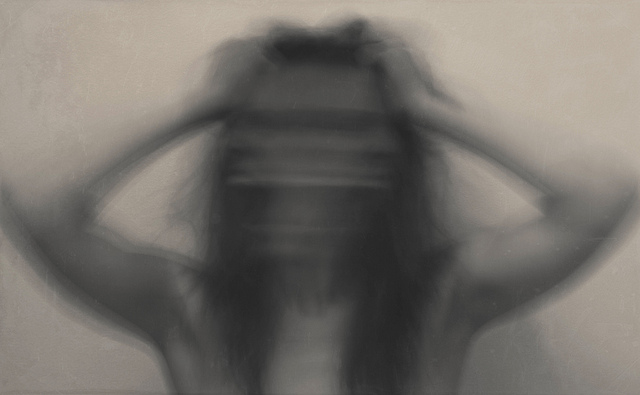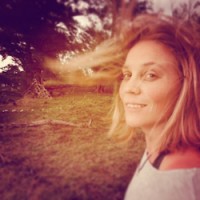“ We are such a radically secular culture, so materialist that to talk about the transcendental is almost un-Australian.” ~ David Tacey
Recently, I acted dramatically.
I left a marriage, quit my job, sold my home and walked out with just three bags.
It was a radical decision and awkward to explain.
Just months before, on a silent meditation retreat, there had been a moment. I had taken a breath, and in that breath the world cracked open and everything fell away. Where I stood was longer than it was wide and deeper than it was tall, I was absolutely everything and nothing at all, and I never quite came back together again.
When I took the breath that came after that, I didn’t have much to say.
In Australia, we don’t talk about experiences like that. It might lead to use of the s— word, which is confusing, unpopular, and highly suspicious.
But will striking the word “spirituality” from our agreed vocabulary also neatly erase my wordless, irrevocable experience?
I hadn’t heard the s— word since I stopped attending church at age 19. The church missed a few of world’s revolutions, so its black and white morality was a poor fit for my post-modern, post-feminism, sexually liberated world. Outside the church’s hallowed halls there wasn’t much else on offer. When spirituality was discussed during my science degree, the lecturer stumbled awkwardly, linked it to psychosis and dismissed us early for beer and wedges in the student tavern.
In secular Australia we just live by family values, tell the truth, act kindly and balance duty with desire (always in the favour of duty).
Out on some fringe, a few new-age types are gonging in teepees, wearing crystals and tripping on psychedelics, but we needn’t take them too seriously. Even if we do attend a yoga or meditation class, we can focus on all those physical and psychological benefits, touted now in everything from top notch science journals to sexy yoga clothing ads. Tight glutes and a loose mind, and some Buddha sitting quietly at the front of the class.
Even when I look to Wikipedia, the esteemed source of all internationally agreed thinking, I find it’s pretty baffled with spirituality. It’s probably about personal transformation, but it could also refer to “almost any kind of meaningful activity or blissful experience.”
It may be religious. It’s increasingly not. Almost half of Australians report having no religion. Almost half of the population report never even discussing religion or spirituality with their friends and family. And with 51 percent of Australians reporting they are not open to changing their religious views, you can understand why not.
Talk about a dead issue. (Ironic, given that the s— word is derived from the Latin word meaning “breath.”)
When did we stop using the s— word?
When I made the decision to change my life in response to my spiritual yearning, I had some pretty helpful input from family and friends: “Good luck on your quest for enlightenment. I hope you get some good guidance,” someone said. Which is a little bit code for “Please go and see a psychiatrist.” “I’ve just seen people make really selfish decisions after going on retreat,” another said, which is only slightly more hurtful than “How does it contribute to the world?”
These comments leave me holding a humble silence, for the answer is infinite and language desperately inadequate.
I might say that we can only give to the world the depth we have excavated within. That in leaning back against the very fabric of the universe I have discovered my inextricable part in it. Like a body part that only functions when wired into the whole system, it is only now that I begin to beat and breathe and press out my own unique impulses to enliven the world. That only from this great sense of connection do I finally have the courage to live what is instead of what I think should be.
Why is it so suspicious, so unrecognisable, to orient our lives to the call of the spirit? When did the practicals and pragmatics pull such focus that spirituality fell secondary to it all? Why has almost half the country stopped discussing religion and spirituality?
Perhaps God is dead.
Perhaps religions have moulded over and disintegrated behind their high walls.
But just because religion lost touch with us, can we afford to lose touch with spirituality? By loosing my grip on the s—word, I lost its texture from my fingertips. I began breathing from lungs instead of my soul. I had a career, not a vocation. I also had a thirst I couldn’t quite name, a despair hollowing out my belly, and numb sleepiness rolling over my eyelids. I was living a half-life.
Beyond the vague bewilderment of Wikipedia, others define spirituality as breath, vigour, courage, the fire within. An ever deepening awareness of a horizon beyond the ego; ungraspable and unmeasurable to scientific instruments that nonetheless people throughout history of all cultures, all times, all educational backgrounds, have reported to know.
A Christian tradition speaks of a God who calls everyone who is listening, not just monks, nuns, priests, “or a few heroic laypeople,” to live free from the compulsions of the world, continually searching for a deeper understanding of the mysteries of life.
David Whyte writes that beyond the busyness of our superficial working lives, there is a deeper world of vocation that “leads us to an older, intimate, and more human sense of belonging.”
A Norwegian legend says that before a soul is put into a body the soul is kissed by God, and during all its life on earth the soul retains a dim but powerful memory of its kiss.
I don’t really know how to use the s— word, but with definitions like that it seems worth trying.
Without the s— word, I have a hard time explaining (defending) just what it is I’m doing. I don’t have a fixed address. I don’t have a career plan. No certain income. I don’t have a family planned.
I do know I have set my ears to the earth and heard a calling. It’s more compelling than anything I have ever experienced. It has shredded my life as I knew it. I don’t know my destination. I have a dim but powerful memory. I trust it to become clear, but if it never does, I will follow it to the ends of the earth. These are my feet, born to the know the way. I am making my way through the desert, following a gushing stream from within that when I drink, finally quenches my thirst.
I’ve been called to a spiritual life.
Actually, we all have.
~
References:
Tacey, D. as quoted by Zwarts, B. 2003, A hunger for the spiritual: the Australians finding new meaning in Christmas. Sydney Morning Herald, December 21. Available from smh.com. [April 16 2015]
McNeill, D., Morrison, D. Nouwen, H. , Filártiga. J. 1983, Compassion, a reflection on the Christian life. Garden City, N.Y.: Image Books.
Whyte, D. 2001, Crossing the unknown sea: work as a pilgrimage of identity. New York: Riverhead Books.
Author: Caitlin Prince
Editor: Emily Bartran
Photo: Porsche Brosseau/Flickr







Read 16 comments and reply